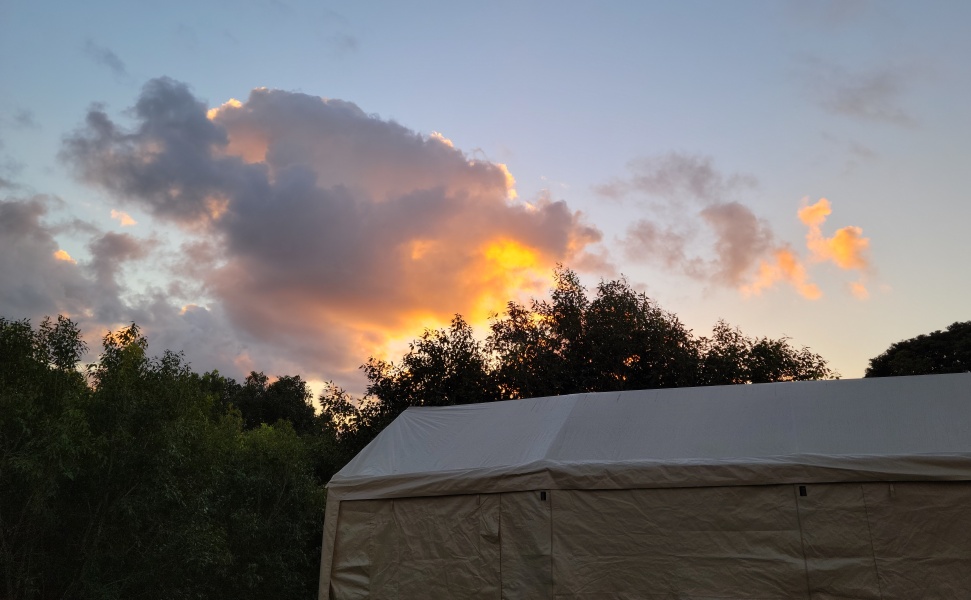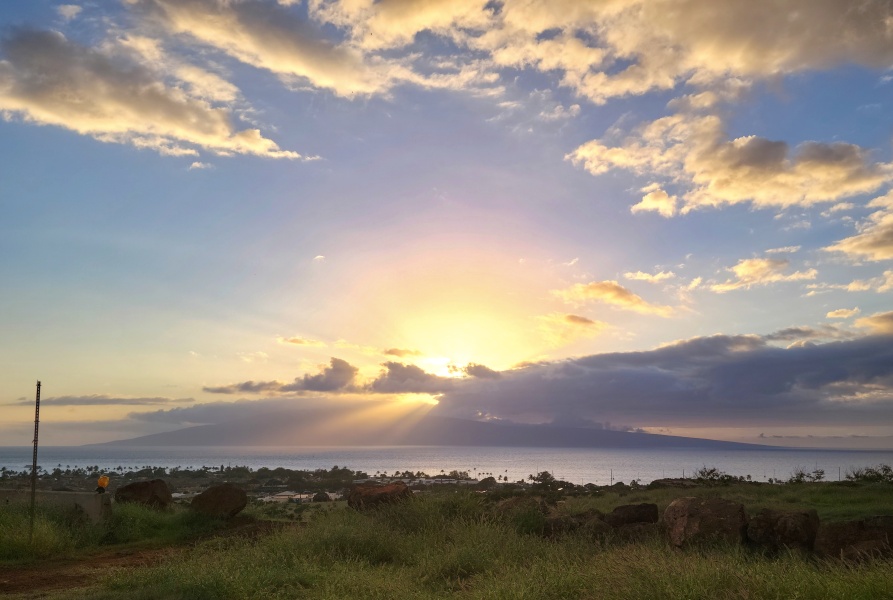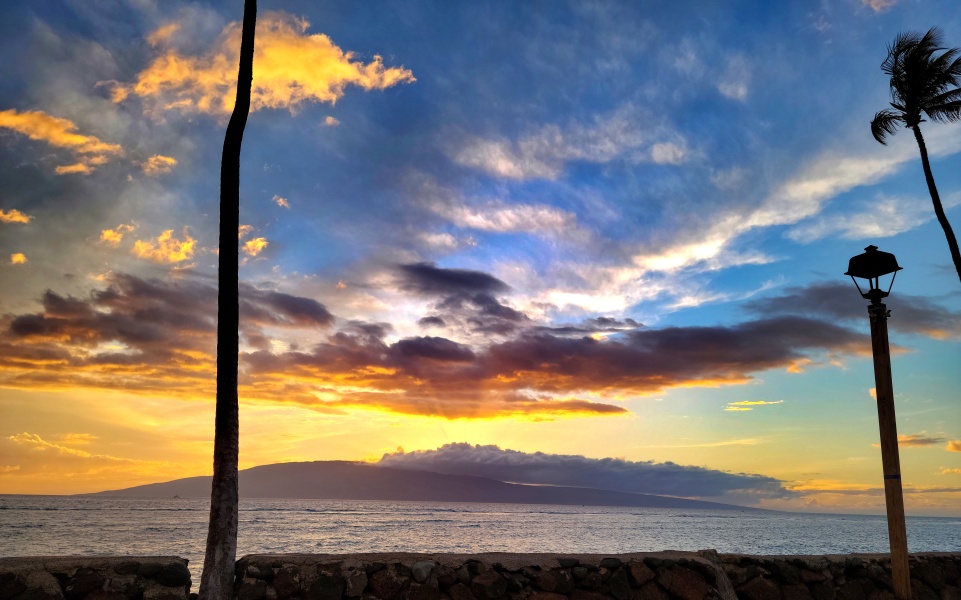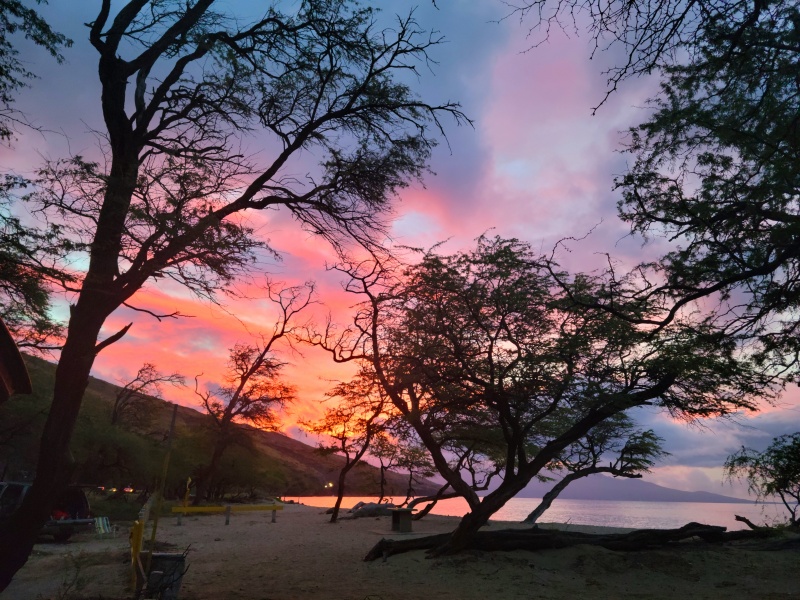| By: Paul S. Cilwa | Viewed: 4/19/2024 Occurred: 2/26/2021 |
Page Views: 681 | |
| Topics: #Coronavirus #Maui | |||
| Looking forward in the last third of my life. | |||

I want to talk about death. Really, I want to talk about it but whenever I try, people assume I'm all depressed and try to "fix" me.
But that's not it at all. I'll be 70 soon, in a pandemic, and I anticipate death the way I anticipated Maui before moving here, and the way I anticipated rafting the Grand Canyon before I'd ever done that, and the way I anticipated seeing Superman: The Movie in the theatre before it came out.
I'm not saying I'm tempted to rush it, of course. Far from it; there are too many other things I'm anticipating first. But, at the final third of my life, and after numerous life-threatening injuries that brought me literally to the brink of death, I think it would be delusional of anyone to imagine I wouldn't want to ponder the adventure I face.

One of the things I note is that nothing I've ever anticipated has turned out to be that bad. On the other hand, the unanticipated things—flesh-eating bacteria, breaking my leg in two places, Trump stealing the 2016 election—those were the ones that really hurt. What one anticipates, can be moderated to one's own advantage. Not that any of us can escape death; but we can choose to approach it with dread, or with curiosity.
I choose curiosity.

I observe that we celebrate the arrival of babies but not the passing of the same babies after decades of life. And I understand that in babies, we are really celebrating the myriad possibilities a new life has before it. But consider that an "arrival" implies some place or state to have arrived from. So it's reasonable to assume that "departure" also implies a place to depart to.
Language doesn't prove reality, of course. But if there's nothing beyond this world, then death is like turning off a light. There'd be nothing painful or horrible about it. It would be exactly the same as the Light you think of when you try to imagine what you were like before you were born. The only thing to regret (but there'd be no regret) would be any lost opportunities to experience more of the one life you had.
However, a substantial number of people studied have what seem to be past-life memories. In many cases the data in these memories have been verified. I happen to be one of these people. When I look back before my birth, I can go before the Light to being an 18th century Japanese fishing magnate's son, in which lifetime I drowned (an experience that still haunts me). I've also experience astral projection, so I already know I can exist without wearing a physical body.
That makes death itself not a worry for me. No, what I keep wondering is about the process: How will I die? At the age of 100 in hospice, or skydiving, or shot in the back by a jealous wife? Next week in a car accident? In five minutes from a falling piece of satellite crashing on my head?
It's like I'm trying out different scenarios in my head to pick the one I most want to experience.
Because we do have the ability to guide ourselves to the death experience we want. The next time (and every time) I drive Hana Highway, I can take it easy and keep alert, or I can let myself be in a hurry and adjust the music playing instead of keeping an eye out for oblivious tourists. Neither approach guarantees saftey or disaster, but one needn't be an actuary to know which comes with what odds.
Even if we "choose" by not thinking about it…we've chosen.

I have chosen to illustrate this essay with photos of sunsets…and of one sunrise. You'd have to know exactly where I took them, to know which is which.
If birth is sunrise, then death is sunset; and as the former offers unlimited possibilties for the day, there are also unlimited possibilities in the night.
And who's to say that birth does equal sunrise? Maybe life on Earth is the night and death is actually sunrise?





